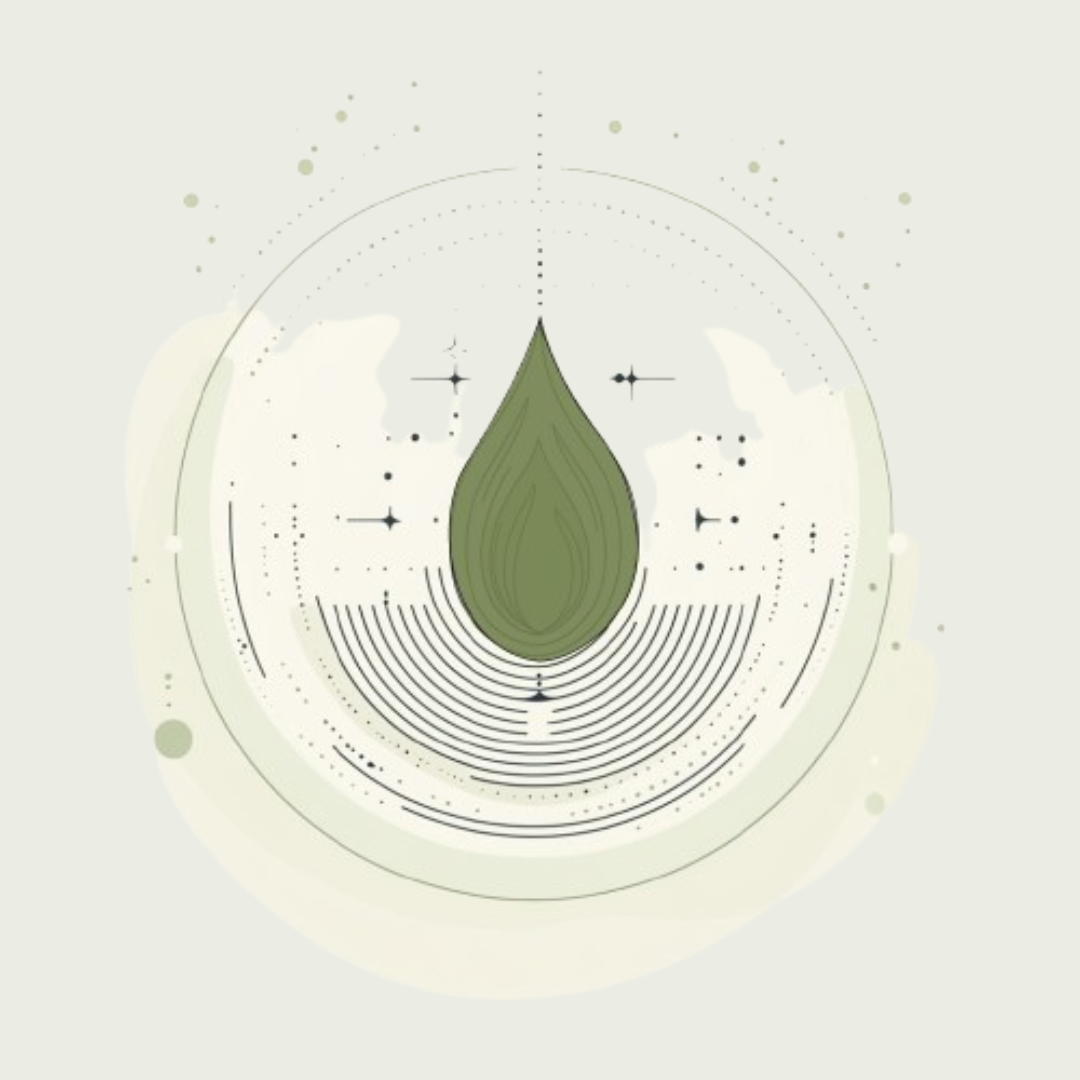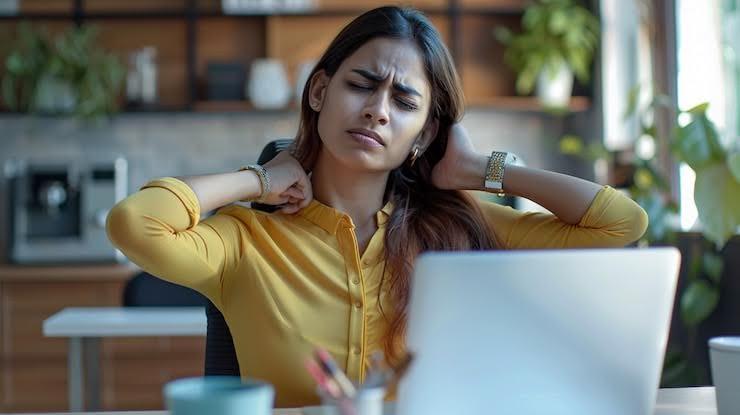Highlights
Stress doesn't always announce itself with loud signals. Sometimes it’s just the quiet heaviness that lingers after a long day, the sleepless nights filled with racing thoughts, or that feeling of being emotionally drained even after doing very little. You might try deep breaths, a walk, or a break from screens, and while they help a bit, the sense of being out of sync with yourself stays.
There’s a reason modern fixes often feel temporary. Many of them look at stress from the outside. Ayurveda, the ancient Indian system of natural healing, takes a different approach; it helps you understand stress from within.
It’s not about quick tricks; it’s about learning how your body and mind respond to the world around you, and gently bringing them back into balance. This ancient system of health doesn’t just calm your nerves; it can help you reconnect with your natural rhythm and find steadiness in the middle of the storm.
What is Stress?
Stress often shows up when you least expect it. A missed deadline, a tense conversation, or even traffic on your way home can set it off. At its core, stress is your body’s natural way of responding to something it sees as a threat, whether it’s a real danger or just a perceived one. Your system kicks into high gear, releasing hormones (chemical messengers) that prepare you to either fight, run, or freeze. It’s a survival mechanism that’s been with us for thousands of years.
And believe it or not, stress isn’t always the villain. In small doses, it helps you stay alert, meet a deadline, or perform under pressure. But when that stress sticks around, when it becomes a regular part of your day, that’s when the trouble begins. You start to feel overwhelmed, exhausted, and out of sync with yourself. And this isn’t rare. According to a survey by MoneyControl, nearly 9 out of 10 Indians report experiencing stress, a number that’s even higher than the global average.
The Different Types of Stress
Stress doesn’t always look or feel the same. The American Psychological Association groups it into three main types, and understanding them can help you recognize what’s happening in your own life:
- Acute Stress (short-term stress): This is the kind that shows up suddenly in response to something immediate. It might give you a burst of energy or focus, but too much at once can leave you exhausted.
- Episodic Acute Stress (frequent short-term stress): This is when acute stress happens over and over, like always being in a hurry, easily frustrated, or constantly worried.
- Chronic Stress (long-term stress): This is the most damaging kind, the kind that doesn’t go away for months or even years. It can be caused by ongoing problems like financial strain, difficult relationships, or unresolved past trauma (deep emotional pain from earlier life experiences).
How Ayurveda Helps Manage Stress?
While modern medicine often sees stress as either “good” or “bad,” Ayurveda views it more holistically. In Ayurveda, stress is called Sahas (mental strain or hardship), and it's seen as a root cause of many diseases. If not managed, it can reduce your Ojas (the body's vital energy and immunity), making you more prone to illness.
Ayurveda teaches that your health depends on the balance of three life energies, or doshas:
- Vata (linked to movement and the nervous system)
- Pitta (linked to digestion and metabolism)
- Kapha (linked to structure and stability)
Everyone has a unique mix of these, but one is usually more dominant. When stress upsets this balance, different symptoms appear depending on your dominant dosha:
- Vata imbalance: Anxiety, worry, sleeplessness.
- Pitta imbalance: Irritability, anger, high blood pressure.
- Kapha imbalance: Feeling stuck, sluggish, or emotionally heavy.
Understanding your dosha is like having a personalized map of how your body reacts to stress, and how to bring it back into balance.
What is Depression Through the Doshas
In Ayurveda, depression is seen as a deeper disturbance in dosha balance:
- Excess Kapha (earth and water) can dull your mind and slow your energy.
- Disturbed Vata can unbalance the nervous system and lead to overthinking or fear.
- Suppressed Pitta can lower motivation and digestive fire.
Together, they create symptoms like low mood, mental fog, and a lack of interest in life, much more than just feeling sad. Ayurveda addresses all of these together, focusing on both mind and body.
How Ayurveda Builds Lasting Inner Peace?
At the heart of Ayurveda’s approach is Shanthi (inner peace). It doesn’t treat the body and mind as separate; they reflect each other. Ayurveda works by changing your daily habits, so you prevent stress rather than just react to it. This is part of a branch of healing called Rasayana (rejuvenation and renewal), which has three parts:
- Achara Rasayana (healthy daily habits): Like meditation, regular sleep, yoga, and calm routines.
- Ajasrika Rasayana (nourishing food): A balanced, dosha-supporting diet.
- Aushadha Rasayana (herbal medicine): Used only after good habits and diet are in place.
Natural Remedies for Stress and Anxiety:
When life feels overwhelming, sometimes the best solutions come from gentle, natural shifts you can easily add to your daily routine. Ayurveda offers a variety of time-tested remedies that help soothe both your mind and body, helping you feel calmer and more balanced, without drastic changes. Here are some of the most effective ways to ease stress and anxiety naturally:
1. Lifestyle Shifts That Actually Work
Small habits can create powerful results over time.
- Sleep Well: Restful sleep resets your brain and lowers cortisol (the main stress hormone). Wind down with deep breathing, meditation, or screen-free time before bed.
- Laugh Often: Laughter releases endorphins (feel-good chemicals) that boost mood and ease tension. A daily dose—like a funny video or joke—can lighten stress.
- Slow Down: Taking mindful pauses during your day calms your nervous system. Even short breaks or deep breaths between tasks can ease overwhelm.
- Stay Connected: Talking to loved ones boosts oxytocin (the bonding hormone), helping you feel calm and supported. A good chat or hug goes a long way.
2. Music Therapy
Music isn’t just entertainment; it’s medicine for your nervous system. Listening to calming tunes or playing an instrument helps regulate anxiety and ease mental tension. Music therapy has been used for centuries and remains a valuable tool today, even helping people manage serious conditions like PTSD (post-traumatic stress disorder). Try creating a playlist of soothing sounds to turn to when you need to unwind.
3. Move Your Body
Physical movement is one of the most effective ways to combat stress. You don’t need intense workouts; even gentle activities like walking can help. Exercise lowers cortisol levels while boosting mood-enhancing endorphins. It also improves sleep quality and supports overall well-being, making it easier to handle stress with grace.
4. Meditation
Meditation offers a mental reset, helping you clear cluttered thoughts and return to a calm, centered place. Here are some styles you can explore:
- Guided Meditation: Involves listening to a calming voice that uses imagery and sounds to transport you to peaceful places.
- Mantra Meditation: Focuses on repeating a soothing word or phrase to keep distracting thoughts at bay.
- Transcendental Meditation: A silent practice using a specific mantra to help you reach deep relaxation.
- Mindfulness Meditation: Encourages staying fully present in the moment without judgment, helping you observe your thoughts without getting caught up in them.
Ayurveda also offers physical therapies that beautifully complement meditation and support mental calm:
- Abhyanga: A warm, full-body oil massage that relaxes your nervous system and rejuvenates your tissues.
- Shirodhara: A gentle, steady stream of medicated oil poured over the forehead, deeply soothing the mind and easing mental tension.
- Shirovasti: A special treatment where warm oil is held on the head using a cap-like device to promote mental balance.
- Thalapodichil: Applying a herbal paste to the scalp to cool and nourish your nervous system.
5. Yoga
Yoga combines movement, breath, and mindfulness to create harmony between body and mind. Hatha Yoga, in particular, is known for its gentle, balanced approach that calms the nervous system and reduces anxiety. Regular practice can help improve sleep, lower blood pressure, and ease emotional stress. Even a few minutes daily can ground you and restore inner calm.
6. Eating for Ease
What you eat plays a big role in how you manage stress. Certain foods and herbs naturally support your nervous system and balance your doshas (your body’s energies).
- Brown Rice: Rich in amino acids that help produce serotonin, a brain chemical that promotes calm and happiness.
- Green Tea: Contains theanine, a natural relaxant that reduces anxiety and inflammation.
- Almonds: Full of magnesium and vitamin E, which support muscle relaxation and mental clarity.
- Oranges: High in vitamin C, which helps lower cortisol and boosts energy.
Herbs and Adaptogens: These natural substances help your body cope better with stress over time.
- Ashwagandha: A powerful herb known for increasing resilience to stress and improving overall vitality.
- Valerian Root: Often used for its calming effects and support with restful sleep.
- Kava Kava: A plant root that eases anxiety and promotes deep relaxation.
Soothe Stress Naturally with Kerala Ayurveda
Ayurveda offers time-tested, natural remedies that help calm the mind and support emotional balance, without causing drowsiness or dependency. These gentle solutions work by nourishing your nervous system and restoring inner harmony. Here are three trusted products from Kerala Ayurveda you can turn to when life feels overwhelming:
1. Brahmi Pearls
Kerala Ayurveda Brahmi Pearls is a brain nourishing supplement that nourishes, stimulates, and tones your brain. Enriched with Brahmi, Mandukaparni, and Sankhupusphi, Brahmi Pearls help improve learning, memory, thinking ability, and intellect. It also enhances mental clarity, cognitive abilities, reduces stress, and promotes restful sleep.
2. Saraswatha Granules
Kerala Ayurveda Saraswatha granules help optimize brain functions and improve memory and concentration. They also enhance cognitive functions such as alertness, mental processing, clarity of speech, and organization of facts learned, leading to optimal performance.
Conclusion
Stress may be woven into modern life, but it doesn’t have to take over your well-being. With intentional lifestyle shifts, nourishing food, daily movement, and trusted Ayurvedic support, you can cultivate more calm, clarity, and resilience.
At Kerala Ayurveda, we’re here to help you do just that, with authentic herbal formulations and therapeutic guidance rooted in timeless Ayurvedic wisdom. Each of our products is made with care and precision, and Kerala Ayurveda ensures every production batch meets rigorous AYUSH standards and complies with GMP and ISO certifications for consistent quality and safety.
If you’re ready to take the first step toward natural wellness, we invite you to explore our range of holistic solutions.
Faqs
1. What is stress, and what does it do to us?
Stress is how our body reacts when something challenges or worries us. It can make us feel tense, anxious, or tired, and can affect both our mind and body.
2. Can long-term stress make us feel mentally unwell?
Yes, feeling stressed for a long time can lead to problems like feeling sad, anxious, or even depressed. It’s important to manage stress before it affects our mental health.
3. How does Ayurveda (an ancient Indian health system) view stress?
Ayurveda says stress happens when there’s an imbalance in our mind and body. It suggests using healthy routines, herbal remedies, and relaxation techniques to help bring balance and reduce stress.
4. How can we check and manage our stress?
Doctors can measure stress by asking questions or checking things like cortisol levels through blood or saliva tests. Normal morning salivary cortisol ranges from 10.2–27.3 nmol/L at 8:00 AM, dropping to 2.2–4.1 nmol/L by evening. To manage stress, it helps to find out what's causing it, learn ways to cope, and get help if needed.





